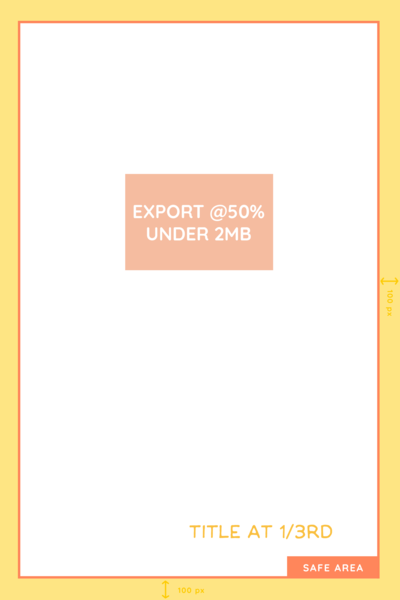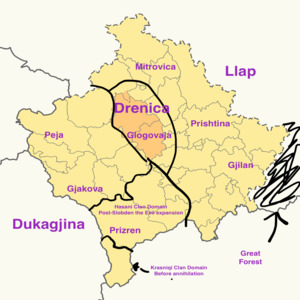We took all the loot, found the entrance to the next floor, then headed back up.
“It will be two weeks until the floor boss respawns,” Albana said.
“We’ll go to the twelfth floor tomorrow or the day after. For now we got what we wanted. I’ll give Butrint all the information today.”
“Hey Arben,” Albana said, “maybe we should keep the loot today instead of exchanging it”.
“Why?” I said.
“Well, if you and Butrint are going to start a company, then we would make more money if we sold the loot directly. Currently the exchange we are selling to takes a ten to twenty percent profit margin. If we sold it ourselves, we would be keeping that.”
I picked her up and kissed her on the cheeks.
“Albana you’re a genius!” I said.
She was blushing and the cat girls were pouting.
“Oh no, it’s just what we did back in Trepica, that’s all, hehe.”
“You were with the Trepica Company, meow? Wait you must be the elf girl that ran away after our brothers died, meow.” Dinaka said.
“Y-Yeah,” Albana said, “I’m a runaway slave... A-Are you gonna report me?”
“No way, meow! We would never betray shief, meow!” Dhelpra said.
I grabbed Dhelpra and Dinaka’s throats.
“Good, because else I would have to punish you,” I said.
“P-Please don’t hurt us, meow!” Dinaka said.
I meant it as a joke, but I was half serious. Also, I needed to assert who was boss again, just to be safe. And of course I got a huge erection from choking them.
I let them go and returned to normal. Relief come over their faces.
“By the way, how did you two find me?” I said.
“Oh, we followed you right after you flew off, meow. We figured you went to Prishtina, and asked around for a flying man. You were very easy to find. And have gotten quite the reputation, meow.” Dhelpra said.
“Oh, okay.”
When we got out of the dungeon, I took the finished information we’d gathered and the loot, then I seperated from the girls and flew over to Butrint’s apartment.
Butrint opened the door for me and said, “Oh shoki, c’kemi a je mire!”
“Hey shoki, mire jom,” I said. “I brought back information on the 11th floor for you to sell.”
“Oh shit bir,” he said, “lemme check it out”.
I gave it to him and he took a minute to skim through it.
“This is fucking great bir! The company can make a lot of money from this.”
“Also, here,” I said and gave him the loot. “Albana said that if we had you sell the loot directly, then we would avoid exchange fees.“
“Oh bir, this is great, but I’m kind of running into a problem,” he said.
“What’s wrong bir?”
“Well, the thing is: Right now I have a lot of side hustles and lots of streams of revenues I am regulating and expanding, but I don’t have the manpower to keep looking over it. So, we need to create some kind of self-regulating, self-expanding organisation. I was thinking, you and I do a lot of drugs and come up with some kind of organisational structure.”
“Fuck yeah, sounds good bir. I’m free right now, let’s go.“
I entered his apartment and we sat on the sofa.
Butrint brought pen and paper, and a bag full of hashish and shrums. And this was the night when we invented the now world-known Rapid Organisation System.
The history books say my success in defeating Slobden the Evil and the following unification of Dardania under me stemmed from my amazing abilities.
This is false.
I will say my abilities sped up the process, but in my view, all my success can be traced back to the simple invention of The Overlapping Rank Structure, and the invention of the Rapid Organisation System which followed from it.
In essence, this is what I and Butrint invented that night:
We created a hierarchical organisation with only one boss on top, who would be Butrint.
The organisation, which would later be called Capital Krasniqi, was on the macro-level divided into divisions. And on the micro-level, was divided into ranks in an overlapping rank structure.
And we got rid of the traditional employee system and made a contractor system with a merit list system.
And we also created the personal account system which would be essential for the exponential growth which happened later on.
We also created a basic innovation submission system. And the funding system. And a lot more other systems which would take too long to explain.
We designed the organisation to keep it decentralized and creative, but still allow for centralized coordination. We especially took care to make sure that each contractor’s self-interest was aligned with the self-interest of the organisation as a whole.
We did this not by violently suppressing each contractor’s self-interest as was the norm with most companies at the time, but instead using their self-interest to our advantage to keep the organisation self-regulating and self-expanding.
I will start by explaining the personal account system:
Each contractor had to by default put 10% of all his wages into his personal account.
All the money put into the personal account would be locked into that account forever, and could not be withdrawn or moved. This was called lifetimelocking funds.
When money went into that personal account, that money would go into the pool of capital of the entire organisation, and be used for expansion.
The contractor would then forever be entitled to 100% of the profits the money in his personal account made. So if his personal account accounted for 1% of the entire capital the organisation had, then he would be entitled to 1% of all profits made by the organisation. But 50% of all profits his lifetime locked funds made had to be put directly back into the personal account.
The contractor, of course, had no say in how the money in his personal account was used, and he had no ownership in the organisation.
He only had ownership over the profits his lifetimelocked funds created.
Also, the amount of money in the personal account could never go down. It would either stay still or go up. If the organisation lost money, then the organisation would go into debt, but the personal accounts would stay the same.
This simple system had many major effects. Firstly, it made profits unnecessary for the organisation to expand.
This meant that we could have lower prices than our competitors and still keep expanding.
Secondly, it made each contractor think about the long term state of the organisation as a whole, since if the organisation was doing badly, his profits would be doing badly as well.
We found that this made each contractor very serious about his job, and very loyal to the organisation.
On the micro-level all the contractors were organised into hierarchical ranks, with a continuous overlapping rank structure. By that I mean it was organised into as such:
1. Head
2. Subhead
3. Subsubhead
4. 4th rank
Except for on the bottom and upper ranks, each contractor is a head, a subhead, a subsubhead, and in the 4th rank.
A head cannot choose his own subhead, but can only choose his subhead’s subsubhead from the 4th rank.
All promotion is internal, and the head can only affect who works in the third rank, and has no power to promote anywhere else.
And the subsubhead has direct communication with the head, and can complain about his head, and cause a review where the head, subhead, and subsubhead would solve the complaint.
There are a lot more intricacies and more systems we invented, but I’ll try to keep this explanation short.
In essence, what Butrint and I created with the overlapping rank structure was an internal relationship where the head was always against his subhead. Which in effect would mean that the head was friends with his subhead’s subhead, and the subhead was friends with his head’s head, in every rank. If a subhead wanted to fire his subsubhead, then he had to start a review with his head and the subhead present, and submit the evidence and reason for the firing.
If the head did not approve the firing, then a firing wouldn’t happen.
If the subhead found the review unjustful, he could complain and cause a review against his head.
What stopped subsubhead’s from complaining if the review was just, was that everything would go on their merit list.
Also, among contractors in the fellow rank, there was constant competition to win contracts and promotions.
With this kind of structure, there was constant tension on all sides, and all the contractors were forced to self-regulate the system, and improve the system to compete against everyone else.
With this, we had created a self-improving and self-regulating organisation.
Each contractor had a merit list that recorded everything he had done. Every finished contract, every review, etc. This forced the contractor to always perform because the merit list would affect future contracts he got.
The organisation itself was on a macro-level organised into divisions.
Any contractor could start a division in the organisation, and no division had the monopoly on its specialization.
Each division had one head of the division. Either the head was promoted, or he started the division himself.
If the head started the division himself, then he could not be fired unless his division went into negative.
Each contractor had a funding system. If a contractor had produced x amount of profits, in total when measuring all the value he had consumed and produced, then he was entitled to said amount in funding.
So if he started a new division, then he was entitled all the funding from his funding system.
If the contractor did not have enough funding entitlement, then he could request funding in the innovation system and get the funding if the request was approved.
There are a lot more systems and details that I haven’t explained for the sake of brevity and because writing this is boring.
The collection of these systems is what we called the Rapid Organisation System (the ROS).
Anyway, all you need to know is that during the drug trip, Butrint and I created an organisation that was self-regulating and self-expanding, and where all we needed to do was feed it capital and it would start shitting money.
***
I’m back in the village. I am a child. I’m climbing up a tree. I fall down from the tree, and I hit the ground flat on my back. All the air from my lungs is blown out and I am coughing. Elvana runs up to me worried. She is stroking my hair. I close my eyes. I feel relaxed. I open my eyes. Everything is dark. The village is on fire. It stars raining. I start panicking. I jump and try to fly up, but 10 meters up I am stopped abruptly by a strong force. My feet are chained to the ground. I start screaming, “AHHHHHHHH!!!”
I woke up the next morning on the sofa next to Butrint snoring loudly.
My body is hot and covered in sweat.
I looked at the table in front of us which was covered in notes and designs and systems.
I washed my eyes with water magic, went to the bathroom to pee, then read everything we had created.
“Holy shit!” I said. Ever since I was a kid I had been interested in organisational structures and even tried to get my father to change the organisational structure in our army, but this was something else. From just skimming through all our notes and the final manifesto we had created, I could see the huge potential of this system.
“Hey bir, wake up,” I said and slapped Butrint on his fat belly.
He woke up confused.
“Read this shit, oh bir!“
I got him to read all the notes. Butrint was a surprisingly quick reader.
“Oh qyche bir!” he said, “I think we’ve got something”. We looked at each other in amazement and started laughing maniacally.











Comments (0)
See all